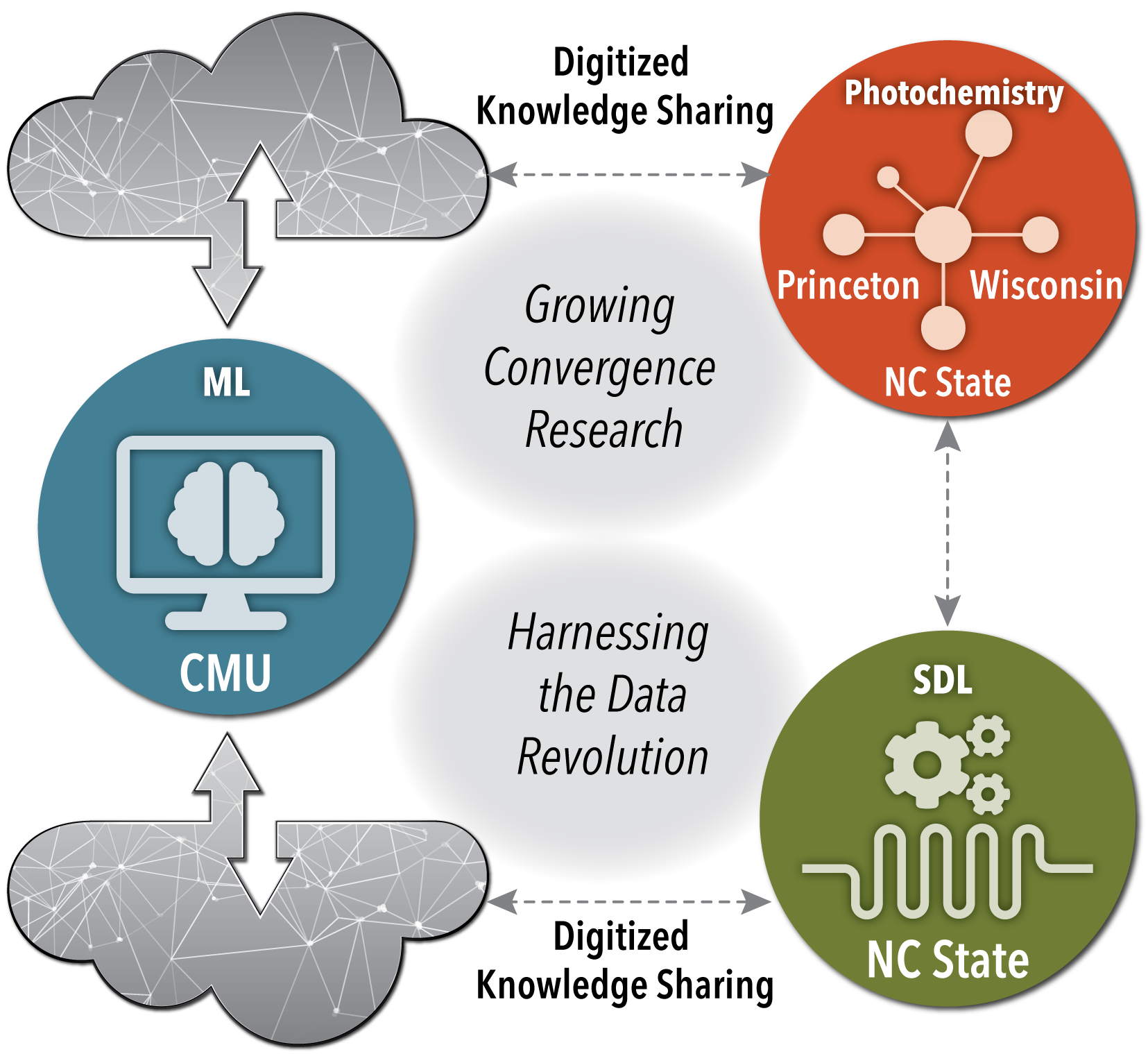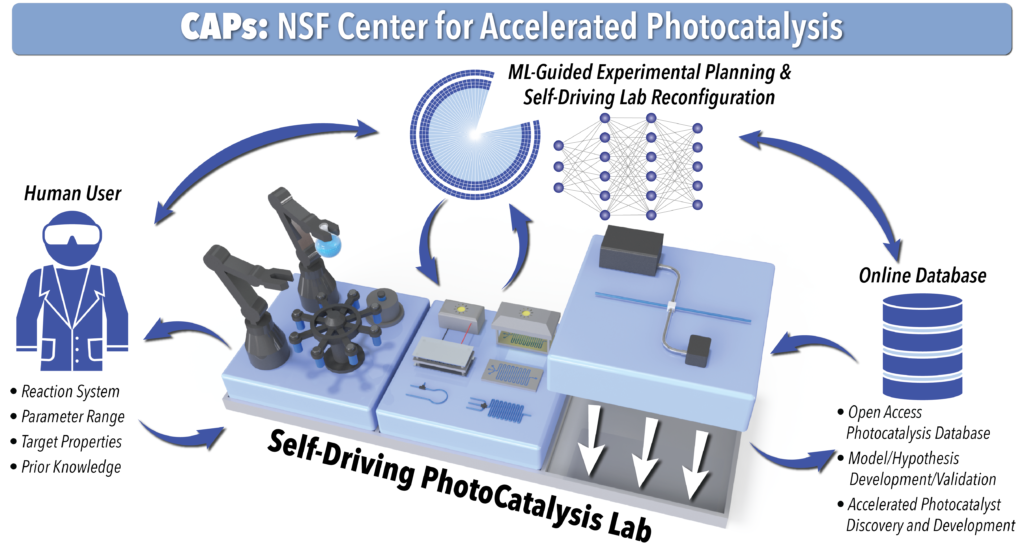Our Research
Learn more about our game-changing research program.
Our research will help us thoroughly comprehend and accelerate fundamental studies of emerging photo(bio)catalysis for small molecules. Specific reactions to be investigated include: i) photoenzymatic alkene functionalization (ene-reductase) that departs from libraries of alkyl halides and alkenes and ii) asymmetric dual-catalyst photoreactions in parallel with iii) the accelerated discovery of high-photostability dyes and chromogenic photostabilizers using cheminformatics.
The resultant photochemistry knowledge gleaned from explorations in the first research thrust will be extended to achieve hydrotrifluoromethylation using photoenzymatic conditions for the first time, along with developing regioselective arene functionalization chemistry. Baseline and quantitative photochemical parameters will be assessed to formulate reaction conditions leading to successful transformations targeting unique approaches towards preparing valuable small molecules (human-driven scientific discovery).

Armed with this information, CAPs will rapidly explore/exploit the high-dimensional reaction space using the existing SDL infrastructure at NC State. Physical- and molecular-based ML scoring parameters will be implemented to quantitatively assess the large body of experimental data generated in the SDL experiments. This will provide critical feedback to the experimentalists (data-driven chemical discoveries). The robotic ‘co-pilot,’ developed and deployed in CAPs, will significantly reduce the time required to find the most suitable photocatalyst(s) and substrate scope(s) for photoenzymatic and photocatalytic transformations that could not be achieved using traditional batch experimentation approaches. In this way, photoactivated synthetic methodologies can be explored to benchmark all relevant parameters impacting autonomous robotic experimentation platforms, ultimately paving the way to newly conceived chemical transformations.
